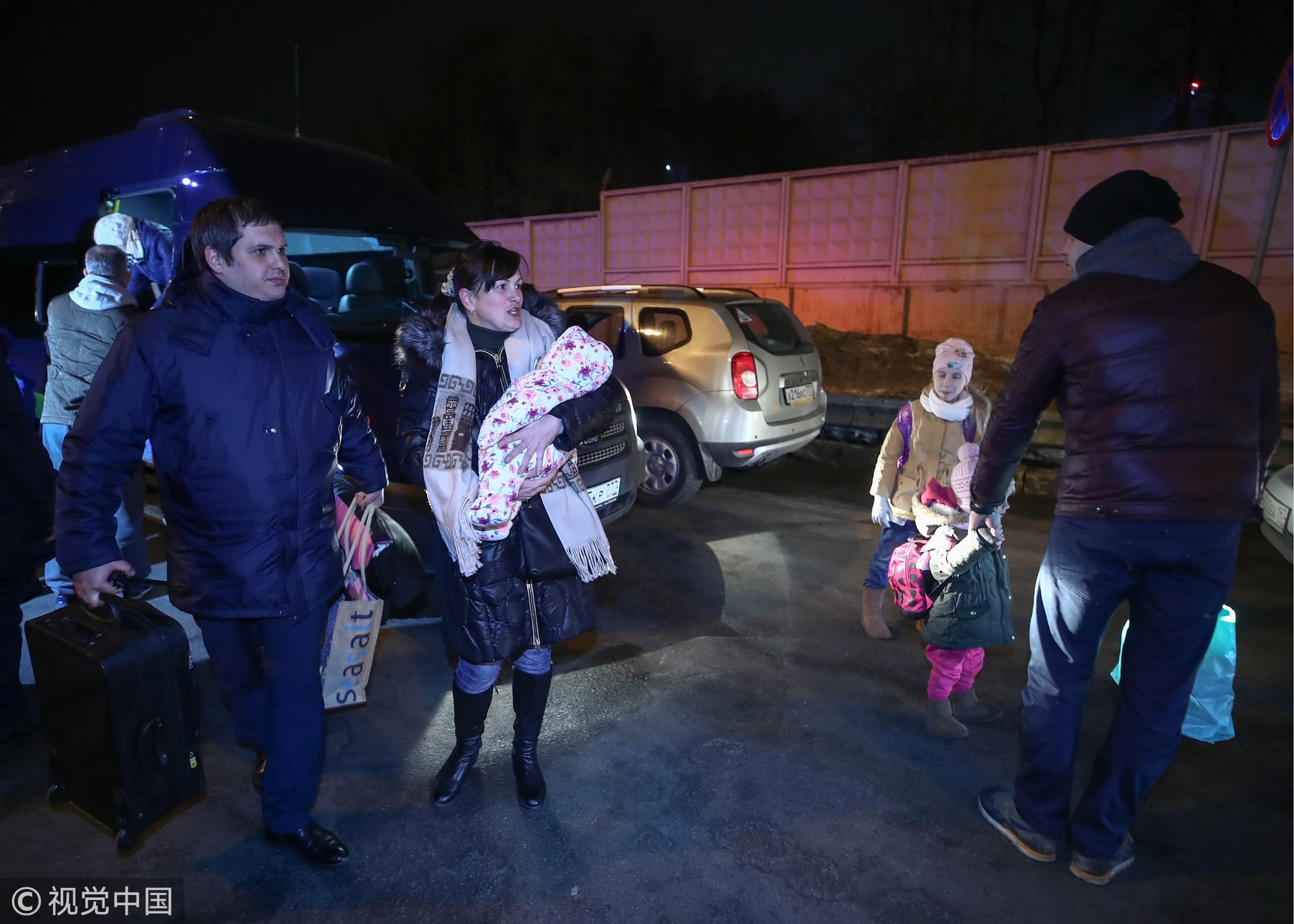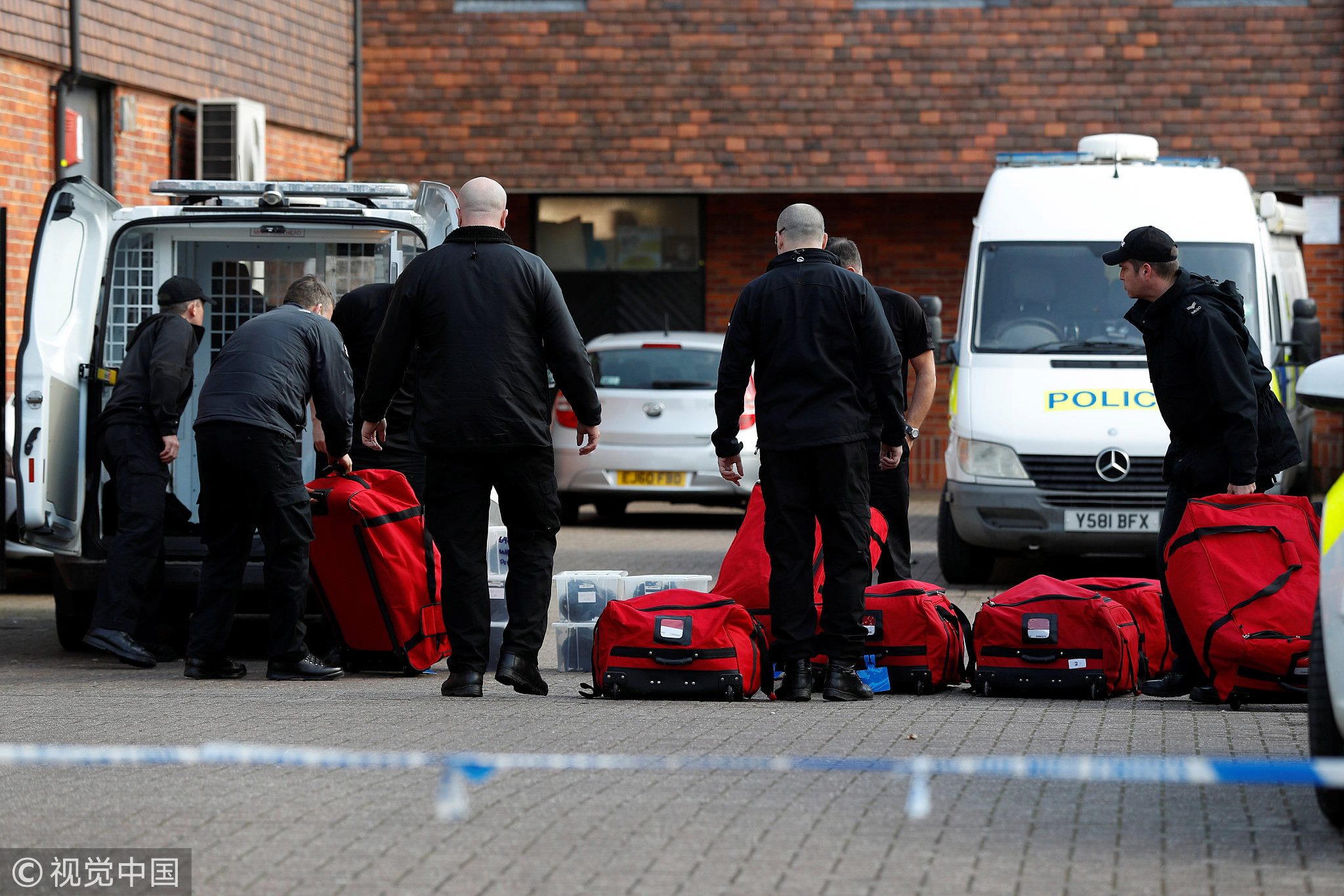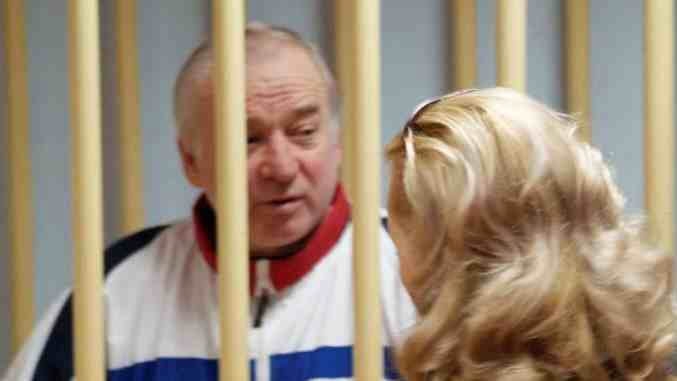On March 4, former Russian spy Sergei Skripal and his daughter Yulia were hospitalized in critical condition after being poisoned in the city of Salisbury in the UK. The incident later heightened tensions between Russia and Western countries.
Since the incident, the UK and Russia have seen rounds of war of words and took turns expelling diplomats.
The United States said on Monday it would expel 60 Russian diplomats, making it the toughest actions taken against Russia. Governments across Europe also joined in taking similar action against the Kremlin for the nerve agent attack that they have blamed on Moscow.

Russian diplomats arrive at Moscow's Vnukovo Airport from London on March 20, 2018. /VCG Photo
Russian diplomats arrive at Moscow's Vnukovo Airport from London on March 20, 2018. /VCG Photo
Who is Sergei Skripal?
The 66-year-old was a well-regarded officer in Russia's military intelligence GRU, until being accused of spying for Britain in 2006. He was convicted, and later pardoned, for leaking Russian secrets to UK's Secret Intelligence Service (MI6) since the 1990s, when he was still serving in the Russian army.
Although Russia denied responsibility, the UK said the attack was "highly likely" to have been carried out by the country, causing the biggest crisis between the two sides since the Cold War.
Now more Western countries are backing the UK, in a cascade of moves that will expel Russian diplomats from multiple countries. Below is a timeline of the events that have led up to the recent announcements.
Timeline: The poisoning of Skripal
- March 4: Skripal and his daughter were found unwell on a bench. Police officer were alerted to the incident.

Inspectors from the Organisation for the Prohibition of Chemical Weapons (OPCW) arrive to begin work at the scene of the nerve agent attack on former Russian agent Sergei Skripal, in Salisbury, Britain March 21, 2018. /VCG Photo
Inspectors from the Organisation for the Prohibition of Chemical Weapons (OPCW) arrive to begin work at the scene of the nerve agent attack on former Russian agent Sergei Skripal, in Salisbury, Britain March 21, 2018. /VCG Photo
- March 5: British media identified the victims as Skripal and his daughter. Foreign Secretary Boris Johnson says Britain will "respond appropriately and robustly" if evidence emerges of Russia's involvement.
- March 7: UK police confirm use of nerve agent in Skripal attack, while Skripal and his daughter remain critically ill.
- March 12: May says the poison used in the attack was a military-grade nerve agent developed by Russia.
- March 13: Russia Embassy threatens to take actions if the UK government continues to suggest Russia was involved in the poisoning of Skripal.
- March 14: May announces to expel 23 of Russia's 58 diplomats in UK and all planned high-level UK Russia contacts suspended.

A police notice is attached to screening surrounding a restaurant which was visited by former Russian intelligence officer Sergei Skripal and his daughter Yulia before they were found on a park bench after being poisoned in Salisbury, Britain, March 19, 2018. /VCG Photo
A police notice is attached to screening surrounding a restaurant which was visited by former Russian intelligence officer Sergei Skripal and his daughter Yulia before they were found on a park bench after being poisoned in Salisbury, Britain, March 19, 2018. /VCG Photo
- March 15: France, Germany, US and UK issue a joint statement condemning the poisoning of Skripal as an "assault on UK sovereignty."
- March 17: Russia decides to kick out 23 British diplomats, giving them a week to get out, and shuts down British Council.
- March 20: 23 Russian embassy staff members leave the UK.
- March 23: 23 British diplomats expelled from Russia starts to leave the UK embassy in Moscow.
- March 26: US President Donald Trump announces to expel 60 Russians over the nerve-agent attack. In the meantime, a total of 14 EU member states also decide to expel Russian diplomats. Russia in response says it will expel at least 60 US diplomatic missions in Russia.





